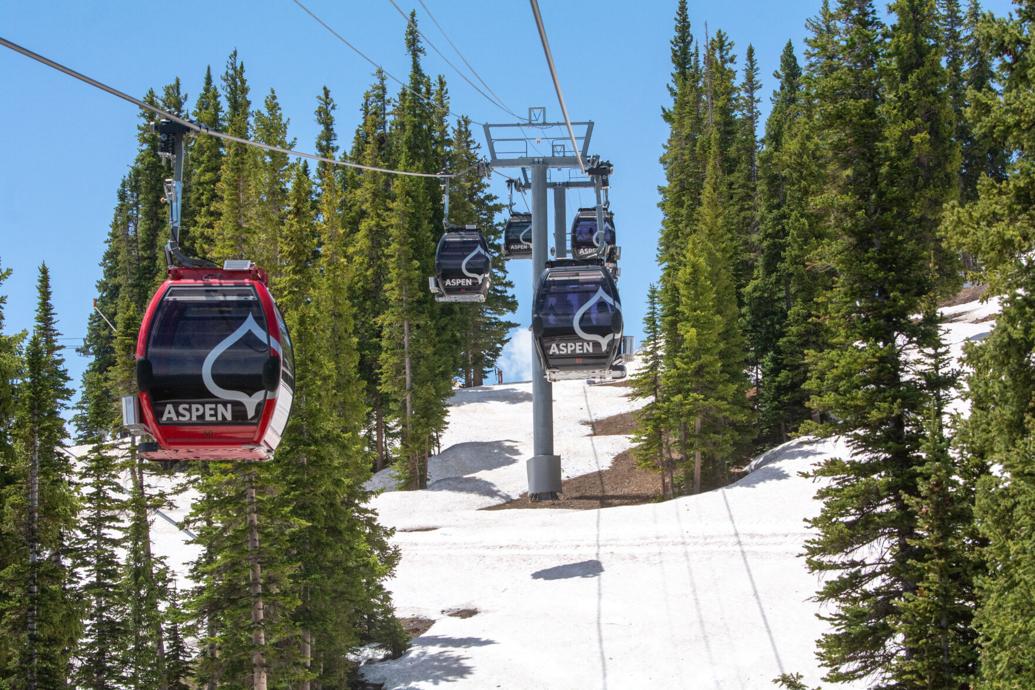

Aspen Skiing Co.’s decision to pay a class-action lawsuit settlement valued at $1.575 million in a compensation dispute was guided by the company’s preference to resolve the matter over engaging in an expensive, drawn-out legal battle, a lawyer said in court Monday.
“The risk, expense, complexity and duration of the litigation — as you may know, class litigation like this can take years — especially with the size of the class we have here,” Steven M. Gutierrez, a lawyer with Holland and Hart speaking on behalf of SkiCo, told 9th Judicial District Court Judge Anne Norrdin.
SkiCo admitted no wrongdoing in its employee-compensation policies, which were challenged in a lawsuit filed by a restaurant worker who said he was being shortchanged on his on-mountain work commutes and not getting proper break times.
Norrdin, who has presided over the suit since its filing on Oct. 31, 2023, granted final approval to a settlement agreement jointly proposed by SkiCo and plaintiff Craig Stout’s lawyers, which calls for thousands of current and former Aspen Skiing Co. employees to receive checks ranging in amounts ranging from $5 to $375. The agreement stipulates that SkiCo pay out a total of $875,000 in cash and $700,000 in retail vouchers redeemable during the 2025-26 season.
The attorneys who filed the suit will receive $551,250 in cash, or 35% of the total settlement value, under the agreement. Former SkiCo employee and class representative Craig Stout will receive $30,000, and $60,598 will go to the administrator of the settlement, according to the agreement and attorney remarks made during the hearing.
“I find and conclude that the proposed class-action settlement is fundamentally fair, adequate and reasonable under the circumstances,” Norrdin said.
Stout was an employee of SkiCo’s on-mountain restaurants when he initiated the suit in Pitkin County District Court. He did not attend the hearing.
Asserting claims under the Colorado Wage Claim Act, Colorado Minimum Wage Act and Colorado Consumer Protection Act, the suit argued that SkiCo workers were missing out on compensation in two ways.
First, time spent by SkiCo employees riding a chairlift or snowmobiles to their on-mountain worksite should be paid, the suit argued. Second, SkiCo workers were not allowed 10-minute breaks as required by law every four hours, Stout’s suit alleged.
SkiCo denied those accusations and emphasized in the settlement agreement that it was not admitting any wrongdoing or liability, but it was ready to walk away “for the sole purpose of avoiding the cost of continuing litigation,” the agreement says.
“Of course we continue to maintain that our pay practices were in accordance with the law as required by the law,” Gutierrez said.
Two classes of members — the “class” and the “on-mountain subclass” — are eligible for settlement compensation.
The main class covers hourly employees — making up 6,351 class members — who will receive compensation for missed rest breaks. The on-mountain subclass — 3,761 members — applies to SkiCo workers who travel from the base of the mountain to their work stations and are eligible for compensation for that time.
A bulk of the subclass also will be members of the main class, Hood said in court. Gutierrez suggested that a one-size-fits-all with the class members might not have passed muster had the case proceeded.
“We continue to believe that these class members were very different in terms of the nature, duration of their work, the type of work they were performing,” he said. “Working at one area (of SkiCo’s properties) was different than working at another. So I think there were a lot of factors that would have led to a decertification (of the class) at some point.”
SkiCo vouchers will be made available to past and current eligible employees on the company’s employee portal.
Unresolved was one of Stout’s disputes with SkiCo over advertised job benefits and whether SkiCo committed “deceptive trade practice” by omitting all of the terms and conditions for prospective at-will employees.
SkiCo lawyers attending the Monday hearing declined comment after the hearing. Stout’s co-counsel, Alexander Hood, attended the hearing. He also declined comment.